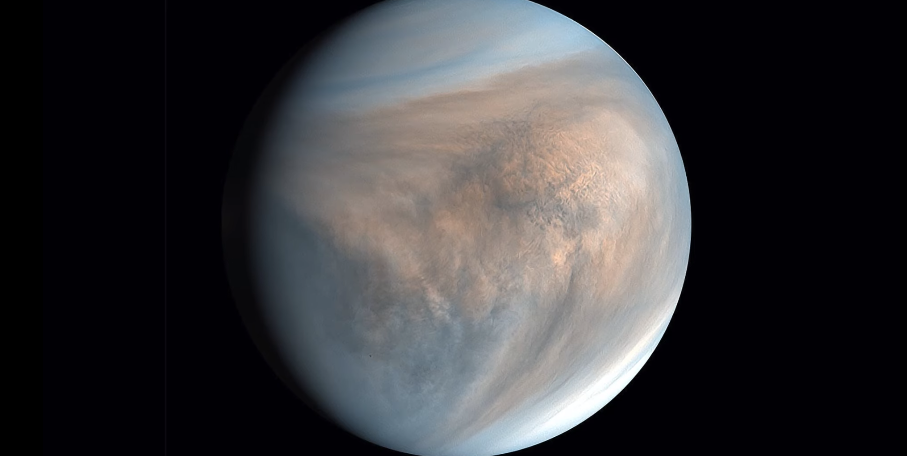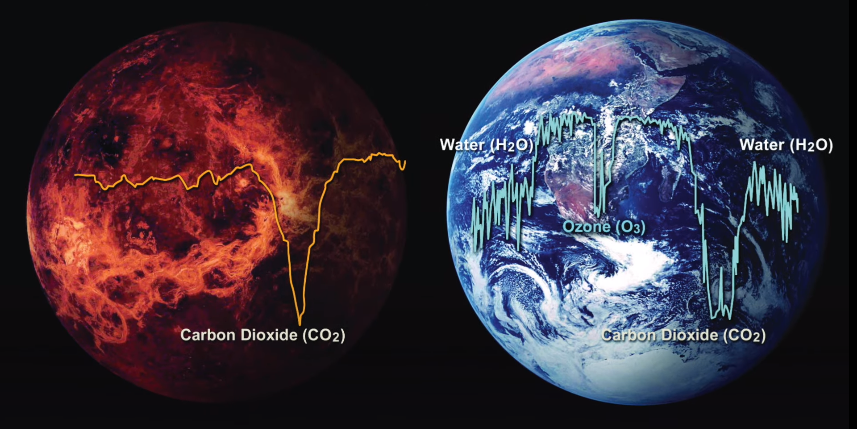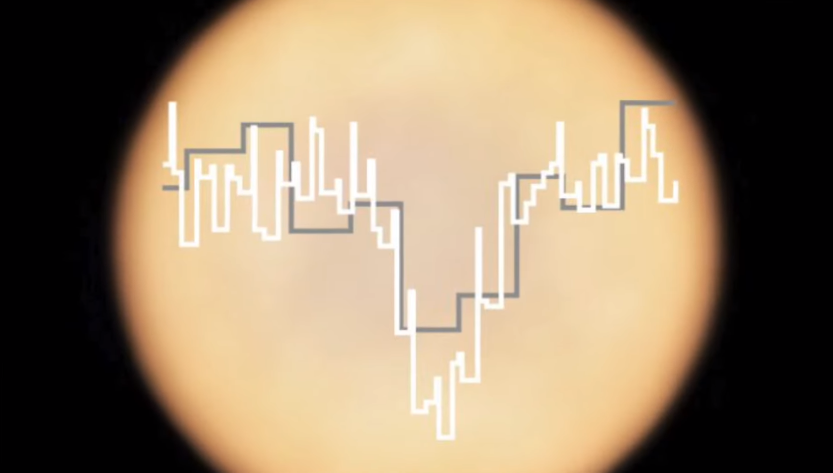Today there is a lot of excitement about Venus, so I said today, talk about it, what is the actual detection and what are the implications. Why are there so many excitements and is this excitement justified or not?
First of all, what is this discovery!
Second, why are they talking about this discovery?
This discovery is a molecule whose name is Phosphine. Basically phosphine is a phosphorus and add three hydrogen atoms to it and it becomes phosphine. This is what phosphine provides for life. There is a lot of phosphine on our earth which is why we are alive here. Phosphine is not the only reason life is produced on our earth, there are other reasons why we are alive. If only phosphine produced life, there would be life on Saturn and Jupiter today because their atmospheres also contain phosphine.
A lot of phosphine has now been found in the atmosphere of Venus. Scientists believe that this phosphine cannot be produced naturally in Venus.
So because of this there is context in relation to the news of this thing. If any micro type of life is discovered in space, then this discovery will be the biggest discovery in history. Therefore, it is important to give it importance and take it seriously.
Venus is a very interesting planet. Venus is about the same size as our Earth, but Venus is closer to the Sun.

Everyone who is interested in astronomy knows that the atmosphere of Venus is cloudy. Until the 1950s and 1960s, the idea was that if Venus had clouds in its atmosphere, its surface weather might be pleasant.
But there was a competing theory.
Competing Theory: If a planet’s atmosphere is thick, it might be warm due to the greenhouse effect.
 Now, when we started to worry about the earth, what can be the impact of climate change, then Venus comes as an example. It is because of Venus that we know what damage can happen if it goes too far in the greenhouse atmosphere.
Now, when we started to worry about the earth, what can be the impact of climate change, then Venus comes as an example. It is because of Venus that we know what damage can happen if it goes too far in the greenhouse atmosphere.
- The oceans evaporate.
- Atmosphere becomes thick.
The surface of Venus is quite warm for this reason. It is also hot due to its proximity to the sun, its temperature is 470º degrees Celsius. Not only that, the pressure there is also very high. The atmosphere there is also very thick, due to which the atmosphere there is 90% more than the atmosphere of our earth. Now, for example, if you go 90 km under the sea, the pressure you feel at that time is the same as the pressure you feel at the surface of Venus.
The Soviet Union sent a few spacecraft. The first spacecraft landed in 1970. Surprisingly, it only worked for 23 minutes because it was so hot and pressurized that it stopped working. After that, another spacecraft was sent in 1972, it worked for only 50 minutes, then it also stopped working. But the images that both of them sent to Earth also got enough information.
Also, Venus is very hot and its pressure is very high. For some time now, we have also known that Venus may have had an ocean. Because when the solar system was being formed, there was enough water, so our idea is that it is also on the comet, it was also on Mars, there is still an ocean on the earth and the idea is that there is an ocean on Venus too.
The idea is that there was an ocean over Venus for two billion years. If the ocean has been there for that long, the idea is that there might be life there. This is just a guess. All the water in the ocean turned into steam due to this heat and went into its atmosphere.
The idea is that life there also migrated into the atmosphere. So, for this reason, scientists have noted the temperature of the atmosphere of Venus, which is about 50 to 60 km above its surface, which is its zone, or Habitable zone, which is formed. What did Life can be possible at such a temperature.

And now the detection of Phosphine happened in this atmosphere. As said earlier that this phosphine is not life itself but the buy product of life. Phosphine on the ground is from human waste. So the idea is that the phosphine of Venus is telling us that maybe there was life there before. But the phosphine found on Saturn and Neptune has a lot of hydrogen due to which phosphine is naturally formed there. So there is not enough hydrogen on Venus, so it is not possible to form phosphine naturally there.
Now the idea is that there is volcanic activity in Venus and there is also lightening due to their chemicals, phosphine can be formed but not as much as it is being detected.
At that time the paper was published. In it, he claimed that he saw a lot of possibility for the production of phosphine in Venice. But that doesn’t explain everything completely, so maybe that phosphine was formed by some life.
My Opinion about Venus Phosphine
First of all, I consider this phosphine production to be the largest claimed. If life existed there, it would not only produce phosphine, but it would also produce other things. So now we need to know more about the result. If there was life there, what else would we have to produce, it’s a little parallel like the discovery of methane and oxygen on mars. So things like that are yet to be discovered that if there is life on Venus then at least there will be methane and oxygen there as well.

